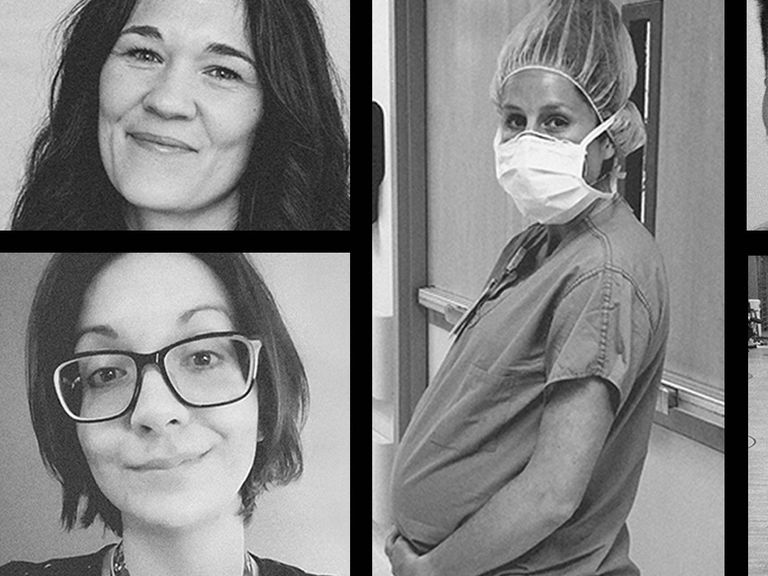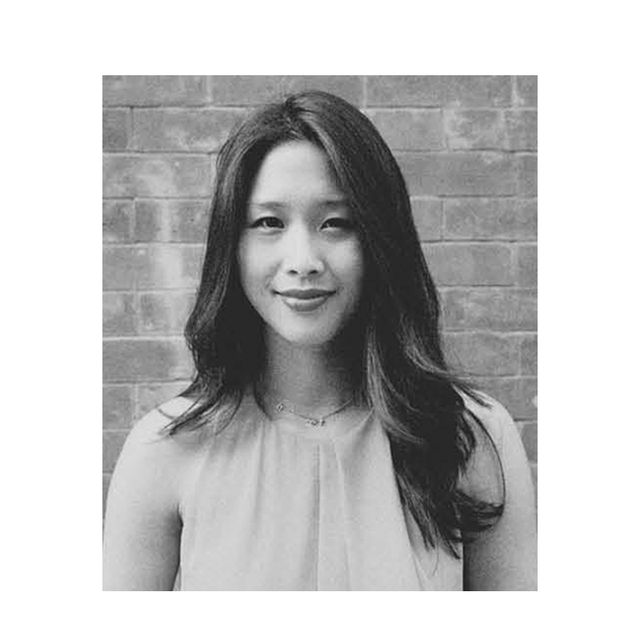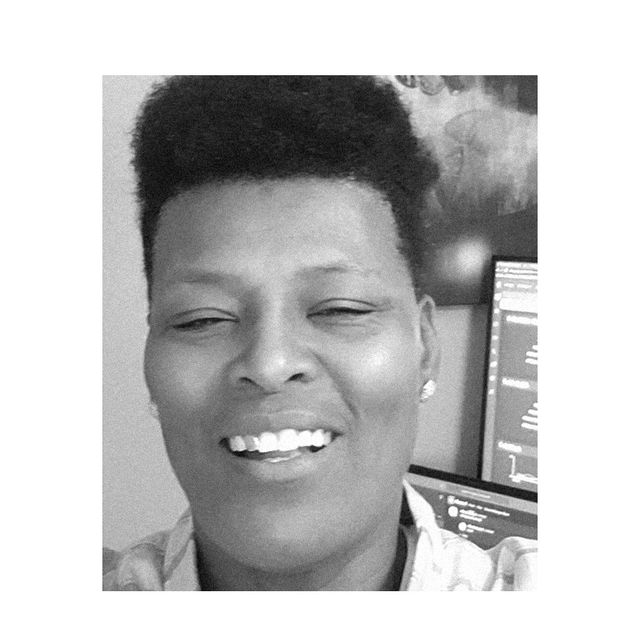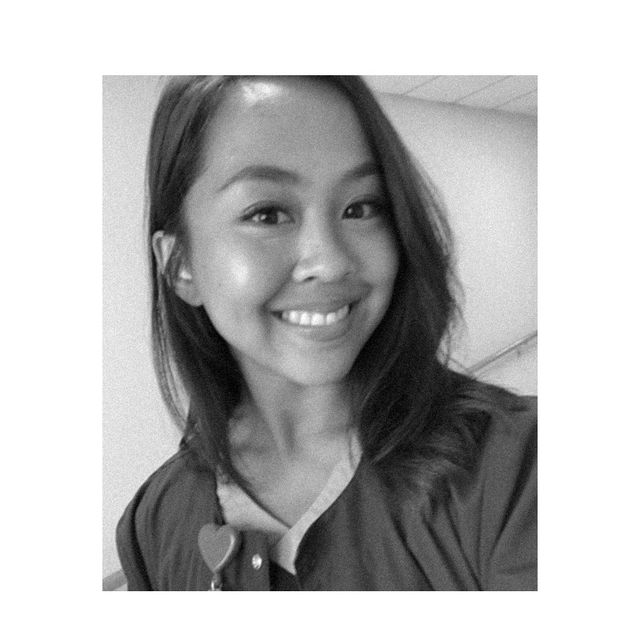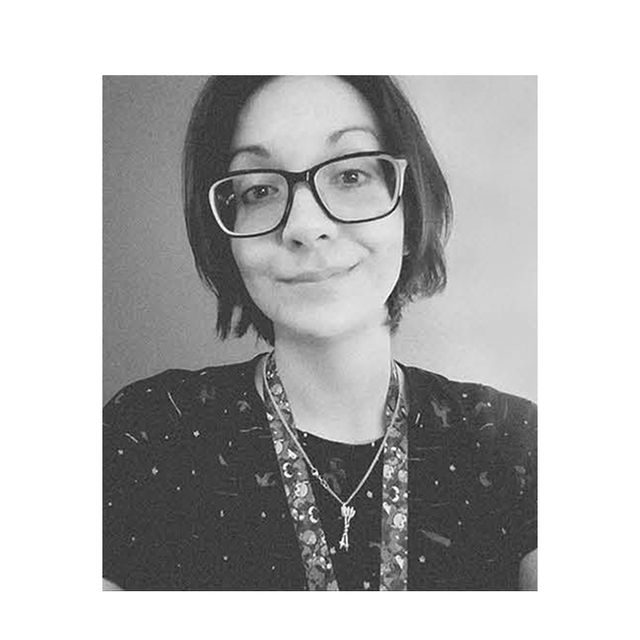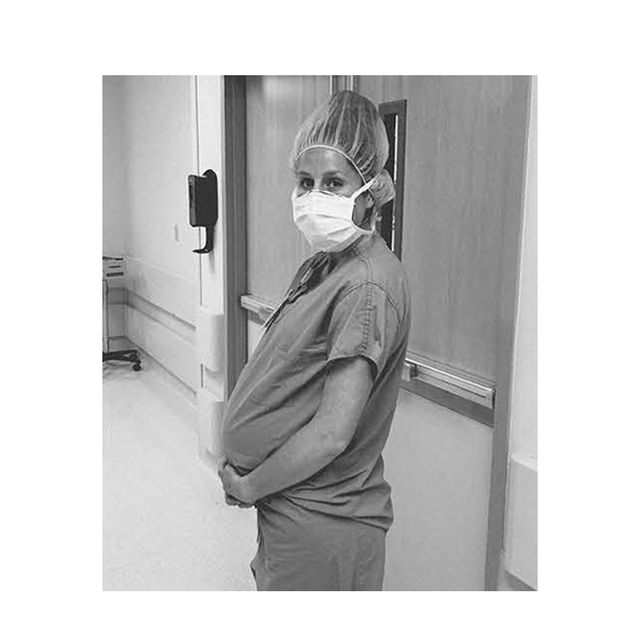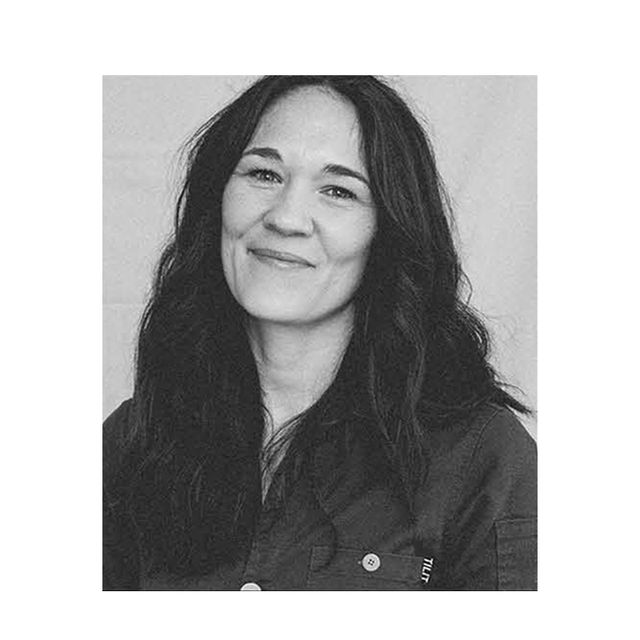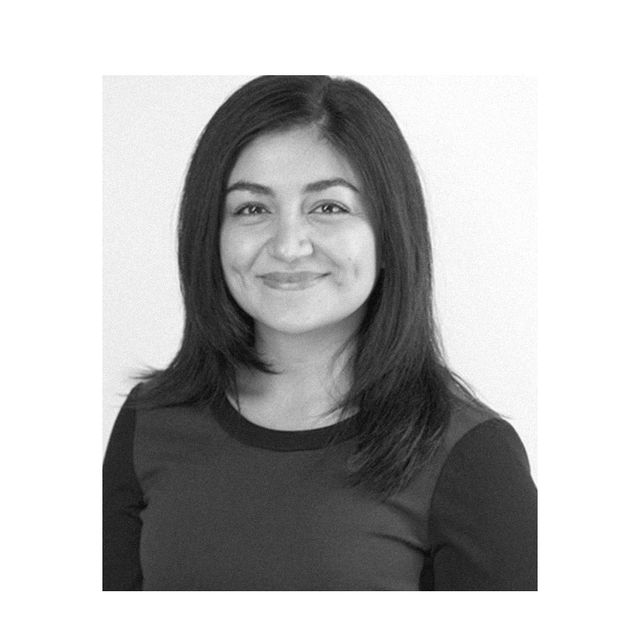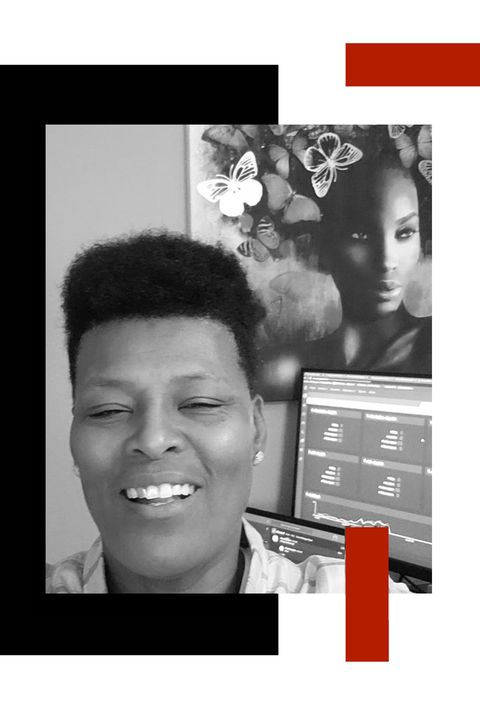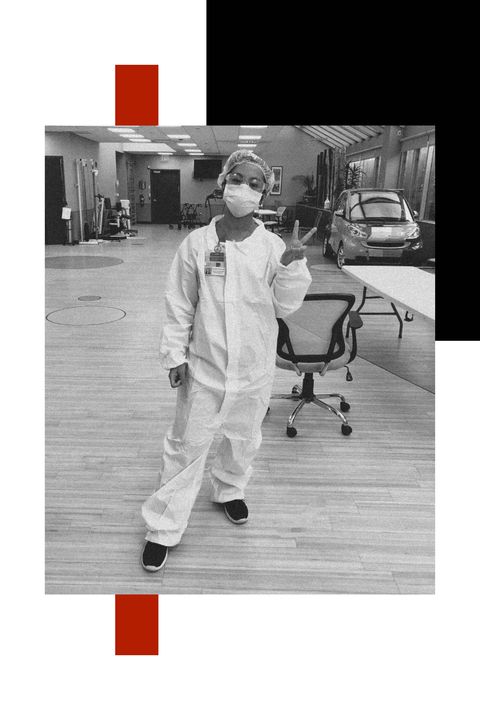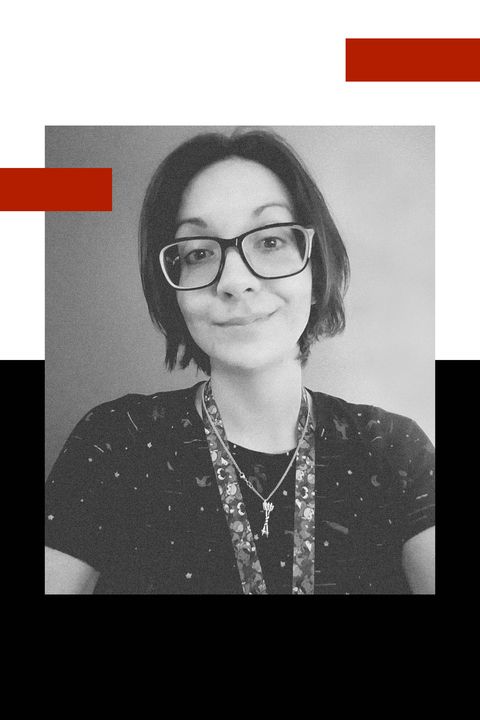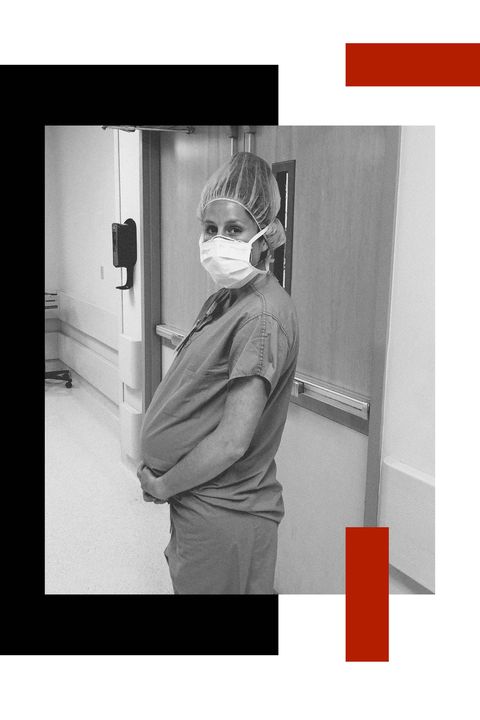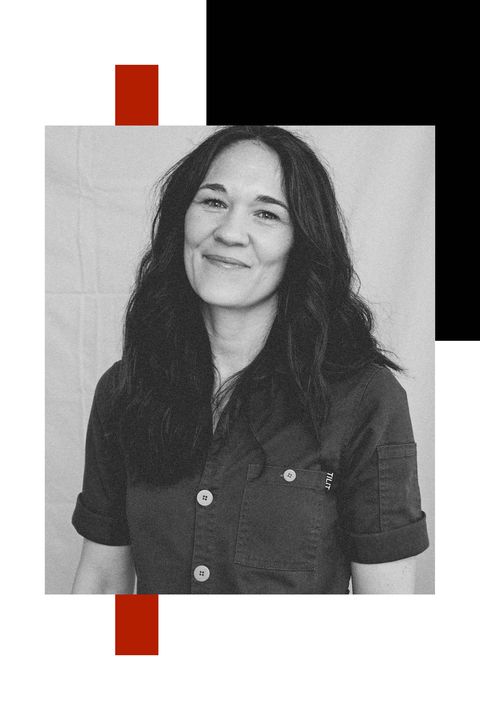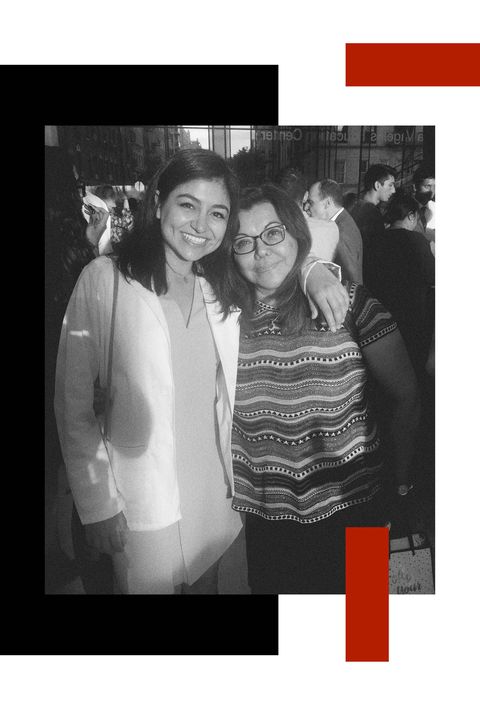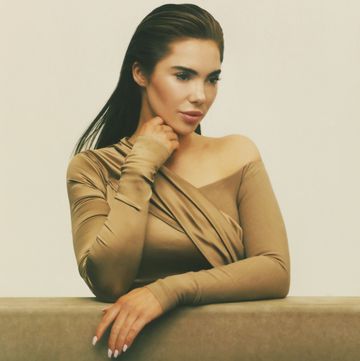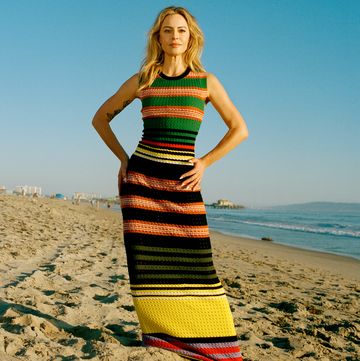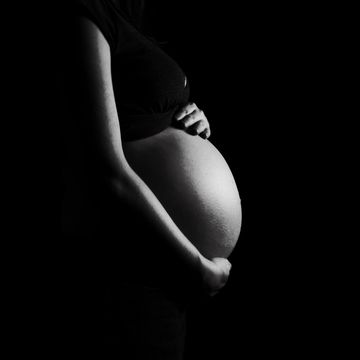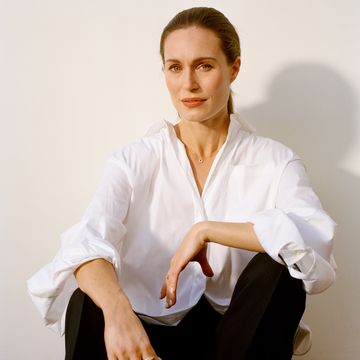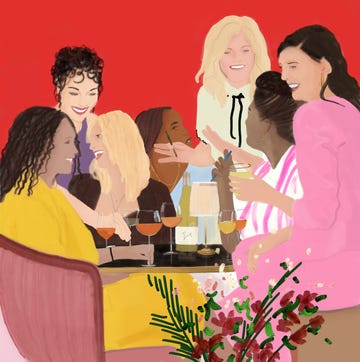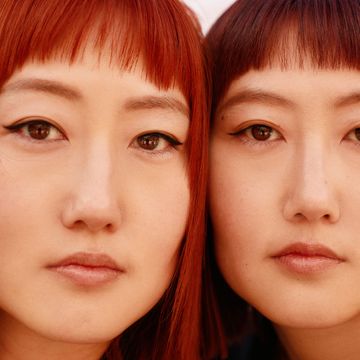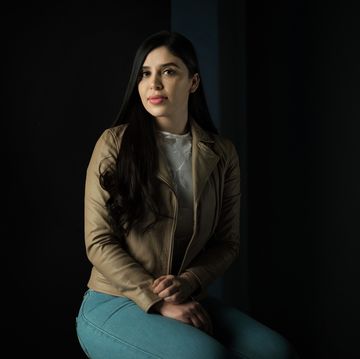They're chefs and nurses. They're grad students and entrepreneurs. They're abortion care providers and soup kitchen managers. Often underpaid and undervalued, these women have quickly become the most essential workers in America. Before the outbreak, men made up a majority of the U.S. work force. The coronavirus crisis changed that.
Below, seven female frontline workers from all over the country reveal how their jobs have been challenged—and their lives forever changed—during the pandemic.
Hannah Cheng, 33
Co-founder, Mimi Cheng’s dumplings
Manhattan, New York
“We felt it at the beginning of February. People were scared of anything Asian-related. The effects of coronavirus hit us weeks before most spots, before there were any legal guidelines about how restaurants could operate.
At first, when non-essential businesses were asked to close, we went to delivery and takeout, though we didn’t make any money from it. Then we added frozen dumplings to the mix. But that whole time, we kept hearing reports about how hospital cafeterias shut down or dramatically reduced their hours. You heard of staff working 18-hour shifts without any access to a real meal. That’s what inspired us to start helping frontline workers. Now, we’ve basically turned into a food bank, using donations from our fundraiser and corporate donations from Verizon, to deliver meals to hospitals in the city.
When everything first started to change, it was extremely stressful. On top of having to stay nimble and aware of every single headline that was coming out, we also were thinking about our team members. How can we protect them? It's really stressful to think, I'm responsible for the wellbeing of over 25 people and their families.
Originally, my sister and I were wrapping dumplings every day because our dumpling wrappers who are Asian American started getting scared to come into work. There were all of these reports about violent acts against Asian Americans, and a lot of them don't speak English that well. It put everyone in a very difficult position of, 'How can you decide between your financial stability, and your emotional and physical wellbeing?' Nobody should ever have to pick between the two.
I've been verbally accosted at 10 AM on my way to work where a guy was yelling racial slurs at me and saying the most disgusting things. I'm assuming it was related to the virus because it came right after President Trump was calling it the Chinese Virus. Unfortunately I think that gave some people a sense of permission to be as racist as they wanted to be.
Before we closed down, an employee noticed that the tone of our Yelp and Google reviews suddenly got really harsh. One of them even accused a dumpling wrapper of sneezing directly into her arm, wiping her nose with a Kleenex, and then wrapping dumplings without washing her hands. It wasn’t true; I checked the video cameras. Our dumpling wrappers frankly were insulted that somebody would even say that about them. It was completely unfounded.
In terms of the business, at the beginning, it was very hard to pivot quickly. Right now, donations are covering the cost of food, packaging, drinks, and labor. We're still figuring out what we're going to do with our rent. We're in the process of applying for loans and all of the available grants.
But delivering these meals has been a bright spot in all of this, seeing the kindness and generosity that's poured out from people. For us to be a conduit of that kindness, it's made everything a lot more rewarding, even though it's a really difficult thing to do every day. The morale at hospitals is just so low. When we send food and handwritten notes from our team and the community, people have said that their teams all start crying. Right now, we’re doing about 2,800 meals per week.
As for the future, we’re going to hope for the best. I'm not sure what things will look like, and I'm not sure what people's reactions to Asian cuisine will be. But we can only pray that people will be open-minded and remember who we were before this all happened.”
Angela Lee, 55
Program Services Manager, National Domestic Violence Hotline
Austin, Texas
"While domestic violence has always been a huge global issue, the pandemic has escalated the danger for victims. My job is to answer our hotline, and I've spoken with several women who say their abusers are able to keep them even more isolated than usual. 'If you go outside, you'll die,' they say. Or, the reverse: One abuser told a victim the pandemic was in her head, and forced her to go to the grocery store. Not only was she scared of abuse, she was terrified of becoming infected by the virus.
Because abuse is about power and control, abusive partners will do whatever they can to make the victim feel inferior. For example: 'Stop overreacting about COVID-19, nothing is going to happen. Stop watching the news.' I hear that over and over again on my calls. I’ve also been hearing about abusive partners preventing people from washing their hands and women who have to use cleaning supplies in secret.
I tell people it’s really important, when you’re quarantined at home with an abusive partner, to have a safety plan in place. I also talk callers through alternative travel options if they need to escape. That means looking at what buses and trains are running, and then taking the extra step to see whether local domestic violence programs are implementing proper social distancing measures.
A lot of the time, we know if there's physical abuse, there's also emotional abuse. And if there's emotional abuse, there's a good chance that it could escalate to physical abuse. For that reason it’s important to look for patterns when talking to callers. Is your partner yelling at you? Have they called you names? One woman told me that her partner called her stupid and weird for freaking out about the pandemic. Of course, it's not stupid at all.
I tell callers to maintain as many social connections with friends and family online or over the phone as possible, when it’s safe to do so. If they’re experiencing stress, from looking at the news or from a partner, I suggest dedicating time to read. I remind callers to be mindful of their needs and their own feelings. I emphasize the importance of self-care activities.
On average, I speak with 22 people a day, which is an increase from before the pandemic. I used to go into our offices, but now I take calls from my one bedroom apartment. It's hard work. It's not like I get calls where they say, "I'm in a wonderful relationship and life is great." I hear about violence and heartbreak and abuse. I’ve found that exercising between calls really helps my own mental health. I get on the floor and do pushups or squats. On my lunch break, I play music.
The survivors need me. Being able to act as a voice of reason and even just listening to victims to tell their stories makes such a huge difference. I know, because I'm a survivor myself. Of child abuse. Of sexual assault. Of domestic violence. Of a suicide attempt. I'm in recovery, too. I've been clean for 23 years after the pain of my past led me down the wrong path.
When I came out of my own abusive relationship years ago, I didn’t know about the National Domestic Violence hotline. I wish I had. I’ve been working there for 10 years now. Of course, I don't love why I have to do what I do, but I love that I'm in a position to do it."
Christine Yaptangco, 29
Speech Pathologist, nursing facility
Brooklyn, New York
“I feel like I literally eat, sleep, and breathe COVID-19. The term COVID-19 rings in my ears. I dream about it.
On a day-to-day basis, I work in a rehab center and a skilled nursing facility. My job is to work with people with dementia, with recent strokes, people with TBIs that have difficulties with their speech and language. The bulk of the people have difficulty swallowing.
I saw things start to change at my job around the week of March 9th. We started getting a lot of educational meetings regarding COVID-19. Initially it was just if you cough, cover your mouth, if you sneeze, cover your mouth, wash your hands, and you'll be fine.
Then the meetings started getting more and more frequent. They would change in intensity, and we were educated on the proper personal protective equipment. Things really changed after that. A lot of employees didn't want to come to work because they were scared. We also found out we didn't have the proper PPE. We didn't have enough N95 masks for everyone. We didn't even have enough regular procedural masks for everyone. We were being told we have to reuse gowns, we have to reuse masks.
We were a team of six, and for that week of March 16th, I was the only speech therapist coming to work. People were scared and didn't want to come in. That was the longest week of my life.
They also began banning visitors altogether. I saw families clustering outside of the facility arguing with the security guards demanding to be let in, and they couldn't.
For the patients that are more cognitively intact, they were asking questions. ”Does anybody here have it? Do any of the patients have it?" They all have televisions in their rooms, and they know what's going on.
Now we're expected to treat every single patient in the facility as if they have COVID-19. That means I receive a face shield, I have gowns, I wear my N95. It's also recommended to double-mask, so I wear my N95 and the surgical mask on top of it, and obviously gloves. It is so hot. I’m dripping sweat within minutes of wearing everything. The N95 is very difficult to breathe in, and my hands are disgusting. They're all dry and cracked and no amount of hand cream will help this because I just have to wash them two minutes later.
Emotionally, it's exhausting. I think fear has struck in everybody's hearts. And mentally, it’s exhausting. As a speech therapist, you use your mouth all the time to model for your patients, to give them cues in treatment. I can't do that anymore because they can't see my mouth. You've got to come up with new ways to help people. You are limited in your equipment, you're limited in your resources.
Plus, COVID-19 is a respiratory thing, and respiration is a huge part of eating and talking and swallowing. I'm getting so many more referrals, so many people needing modified diets, so many people coming to my facility having trouble swallowing because they've been intubated. I'm just trying to survive one day at a time.
People don't realize how dreadful it is seeing it up close, seeing these people just lying in bed, and struggling to breathe, gasping for air. It really is ugly. People are wearing themselves down trying to take care of all these sick people, and I still drive around after I get out of work and see people playing basketball on the playground, high schoolers hanging out with their friends in groups. It boggles my mind.”
Vanessa Rodriguez, 36
Contact Center Senior Manager, Planned Parenthood of Greater Texas
Dallas, Texas
Across the country, nonessential and elective surgeries have been put on hold as hospitals attempt to conserve resources for COVID-19 patients. States like Texas tried to use the recommendation as a way to ban people from accessing abortion. Now, after weeks of confusion, with the courts seesawing in their decision about whether abortions could continue, a new executive order allows patients in Texas to again have access to abortion services. ELLE.com spoke to Rodriguez back when abortion access there was still blocked.
"This process has been heartbreaking. As the contact center manager, I have a team that handles all the incoming inquiries for appointments at our 24 health centers. We help with booking and rescheduling and telemedicine appointments.
Here in Texas, we got a ban from the governor in March. They specifically banned abortion services throughout the entire state. It was difficult on our end, managing patient reactions. We typically book a month at a time, so we had to make hard calls to patients to let them know, 'We're not able to see you now, but call us back. We're hopeful for some changes.' It’s been this whiplash.
It was confusing for a lot of people who didn't quite understand what was happening, and the rapid pace at which it happened. At one point, there was a day where we thought, 'Okay, we're able to provide some essential services for people.' But then we had to turn right around and tell those same people, 'I'm sorry, unfortunately the state of Texas won't allow us to go ahead and continue.' It's been difficult having those conversations with people because of the back and forth.
We’ve had people who are angry and cursing, people who are scared or crying. Some people will just say, 'Okay,' and not much else because they’re processing. There’s shock. We're doing our best to try to help people figure out what their next steps might be.
All of our reproductive health care is essential, and some of it can be time sensitive. Just because we have a global pandemic doesn't mean that people don't stop getting sick. They don't stop getting pregnant, needing birth control, getting tested or treated for STIs, or even having a bad vaginal infection. So it's kind of dismaying and off-putting that the government will use that as a platform sometimes.
[When abortions were banned, we were] helping route patients to a nearby state to inquire about services, depending on what their needs are. We have patients going to New Mexico, Colorado, Kansas. I had a patient who asked for an abortion clinic in Missouri. We're always providing those options. It's important that people know you still have a choice.
Unless this issue is personally affecting you or someone close to you, because of the virus and everything else that's going on, it might be overlooked. But care for a lot of people is being affected, and you may not even know it's happening."
Brook Plato, 31
Surgical Nurse, level 1 trauma center
Kansas City, Missouri
"In January, no one at my hospital believed the virus would reach Kansas City. Those kinds of things don’t happen here, only in other countries. We ignored warnings about what was to come. When it did, it was a total "oh shit" moment. It’s difficult to imagine we were so naïve a month ago. Everything changed very quickly. At this point, it seems like a blur. Every two hours hospital administrators meet to discuss what needs to be done next. I show up to work in the morning and by noon there are new policies in place.
Now we’re preparing for what may come and we're rationing supplies. Initially, masks were required everywhere, but now only one mask is allowed per shift. I’ve been directed to use N95 only when working with confirmed or suspected cases, because I’m pregnant. Gloves and gowns are only for specific cases. I feared this would happen after realizing there were shortages in protective wear.
Suddenly we have security at every entrance. Visitors are restricted and I have to display my badge to enter. It’s all quite eerie. The hospital is completely silent. We’re rushing to get to and from units as quickly as possible. It’s weird and uncomfortable.
I care for COVID-19 patients when they’re in the operating room. My role is very hands-on—I insert foley catheters, position and prep patients, and scrub in to assist surgeons during operations. As my due date approaches, my anxiety levels get higher. I never thought I’d be pregnant and giving birth during a pandemic. My biggest concern before COVID-19 concern was giving birth during a tornado, because I live in tornado alley.
I had a miscarriage at 13 weeks before my current pregnancy. I know what it’s like to go through the loss of what you thought was a perfectly healthy baby. As long as my baby is in my belly, he’s safe.
I'm terrified of testing positive right before delivery and not being with my newborn during quarantine. I don’t think I’d cope well with being taken away from my baby. What scares me most though is what he may be exposed to after birth. Loved ones ask me why I continue to work. I went into healthcare with the intent of helping as many people as I can. I’d feel guilty if I walked away during this situation. It’s an ongoing battle in my head of whether I’m doing the right thing by continuing to work and then returning home." —As told to Lola Méndez
Ginger Pierce, 37
Chef, Holy Apostles Soup Kitchen
Manhattan, New York
"For the past five years, I served as an Executive Chef at 1 Hotel Central Park. I managed a team of 65 employees and, on an average day, we fed around 1,200 people. We were known for our roast chicken with salsa verde and hand-rolled gnocchi. In most hotels, there's a tremendous amount of waste and byproduct that can have a very negative effect on the environment. I was extremely proud that we were able to eliminate single-use products and plastics, and focus on supporting local farmers at a high-volume level.
In mid-February we started to see the impact of the coronavirus. Because the hotel is so reliant on international travel, we got hit a little sooner than the rest of the country. The restaurant began scaling back, but in March things took a drastic turn. By the time we shut down completely, there were only eight guests staying in the hotel, which has a total of 200 rooms.
I was laid off. My husband also lost his job. Last week, we wrote our budget to be out of work for six months. Hopefully that's the worst. I’m not mad or bitter. Not at all. It's unprecedented, and I feel no judgment over any decisions that people make right now, as long as they're not hurting others. I’ve learned that you can't take anything for granted, and we need to make sure that we value what we do have, when we have it.
Now I'm a volunteer with the Holy Apostles Soup Kitchen in New York City, where I help oversee kitchen operations. We serve around 1,000 meals a day in this beautiful courtyard outside the church, where people can line up six feet apart to get their meals safely. When I’m not in the kitchen cooking, I’m using my industry connections to bring in fruit and vegetable donations. The meals vary. We have to be creative with what we receive. Most recently, we made beef stew with baby carrots and heirloom potatoes. We served that with a baby kale salad and a side yogurt, plus an orange. I strive to have a protein, a starch, and a vegetable.
I’m still super mindful of sustainability and safety. We don’t use plastic, and everything is biodegradable. Volunteers are required to wear gloves and masks. We’re always looking for more helpers, especially mostly people with experience in the culinary world.
Working at the soup kitchen is humbling. Seeing people in abject poverty every single day puts things in perspective. It's so important for us to be kind and generous and compassionate right now. And, in a situation like this, when we feel a lot of anxiety and a lot of pressure, it's good to focus on what we do have. I believe that if we're not taking care of folks that are marginalized right now, we're going to come out of this so much worse as a community."
Mary Raddawi, 27
Incoming Resident Physician, Massachusetts General Hospital
Chicago, Illinois
"The moment I realized how serious COVID-19 was getting was when Match Day got cancelled. Match Day is usually a big, happy in-person gathering with family, friends, students, and faculty to celebrate getting into a residency program. Instead, I got an email that I’d been accepted to my top choice, Massachusetts General Hospital, for internal medicine and global medicine. l’ll start there this June as a resident physician after graduating early with the rest of my Columbia University College of Physicians and Surgeons class to work on the frontlines of the coronavirus.
We're starting our careers at a very scary time. I feel so humbled to be going into medicine at a moment when we're needed the most. But, oh gosh, am I anxious. The point of graduating early is to be able to help the healthcare system in various roles, given the medical training that we have. It’s really brought to light the Hippocratic Oath I took when I entered medical school. It's my time to step up to the plate to serve my patients, and, really, my country right now.
While I’m home in Chicago waiting to start at Massachusetts General Hospital, I've been assisting with a volunteer group called the Columbia Student Service Corps. Basically, I monitor six New York patients after they've been discharged from the hospital. I call them every day to check on their symptoms. Do they have a cough? Trouble breathing? I’m beginning to understand what oxygen management looks like for COVID-19 patients. There’s so much that you can't be prepared for until you're actually working as a physician, but until then I’m doing everything I can to prepare to take on the coronavirus.
My mom says she’s very proud of what I’m doing. And that means the world to me, she's my hero. Mom is a pulmonary and critical care doctor who has been taking care of COVID-19 patients. I've been absorbing everything she does for her patients. I've been grilling her about her days at the hospital, studying her interactions with patients, and absorbing how dedicated she is to her craft. I ask my mom who seems to be doing worse, and who seems to be getting better, and why. What is she doing to make her patients better? I want to know everything. All of the conversations we've had over the past few weeks have been so important to me, and useful as I begin my journey into the world of medicine."
These interviews have been lightly edited and condensed for clarity.
